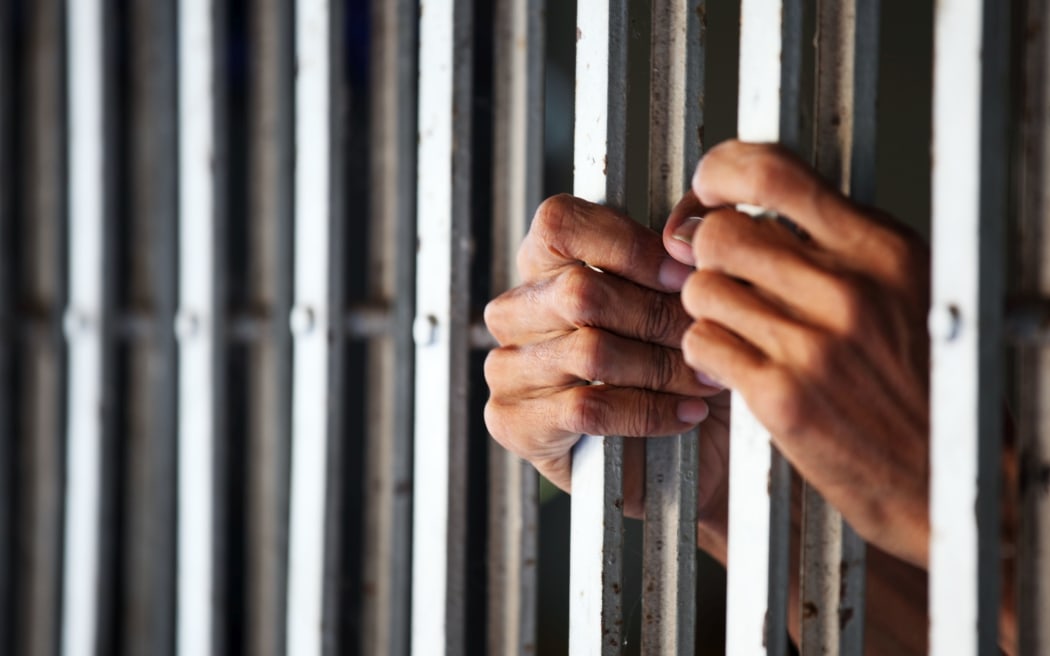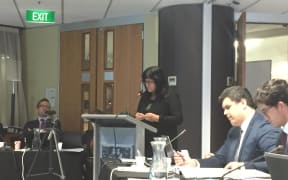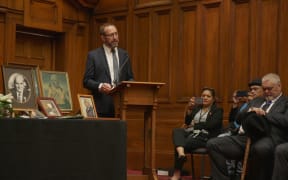The Waitangi Tribunal is telling the government to urgently repeal a law preventing prisoners from voting so they can take part in the next election.

Photo: 123RF
The Tribunal has released its findings following an urgent hearing into the voting rights of Māori prisoners in May.
The scathing report finds the 2010 law banning prisoners to vote is significantly prejudicial to Māori, is in breach of the Treaty and disenfranchises Māori.
It also found the law exacerbates the already disproportionate removal of Māori from the electoral roll.
In 2010, Māori were twice as likely to have been removed from the electoral roll and in 2018 the number was 11 times more likely.
Dr Rawiri Waretini-Karena was one of the claimants in proving that the law was prejudicial to Māori and a breach of the Treaty.
Before the law was changed in 2010 by the National party, Dr Waretini-Karena served 11 years in jail at a time prisoners were able to vote, and said it was a fundamental right which is part of the rehabilitative process.
"If prison is to be part of the rehabilitation process, what happens is it enables them to be part of the democratic process - it enables them to participate alongside the rest of the community, and to me that can only be a good thing."
Dr Waretini-Karena said the implications of the law had been widespread and intergenerational.
He said the findings were overwhelming and believes the government needed to act fast.
"I'm looking at their recommendations, they're actually saying remove the disqualification irrespective of their sentence, that is powerful.
"It puts the onus back on the Crown, especially in terms of consulting with their Treaty partner.
"It has highlighted in the Treaty analysis that it was a major foresight that they didn't, and the implications of it have been widespread."
The Tribunal's report found the law has disenfranchised Māori prisoners and continued to impact on them following their release.
It also found that at the time the law was passed in 2010 the advice given to the Select Committee failed to provide sufficient information about the specific effect the legislation would have on Māori and Crown rights and obligations under the Treaty.
Awatea Mita gave evidence at the hearing in May, and has served time in prison for a non-violent crime. She said not being able to vote in prison contributed to the already punitive system prisoners were placed in.
"When you're part of a system that is stripping your dignity in so many ways and then not being able to vote, it's a devastating feeling, and a feeling of not being good enough, not being worthy as a person."
Before 2010 some prisoners were able to vote. Those excluded were prisoners sentenced to life, preventative detention, or who were serving a sentence longer than three years.
However the Tribunal recommended the law must be amended urgently - irrespective of their sentence.
Awatea Mita said if the ban was removed it would not only have an impact on Māori prisoners, but on all Māori.
"What the recommendations from the Waitangi Tribunal represent is a huge loss of ground by Māori in order to exercise their voting rights, so this government needs to get on board.
"They need to remove the prisoner voting ban and let us get on with the next job, which is to get our whānau and our communities enrolled, so that they are able to exercise their right to vote and participate in the political future of this country," she said.
Ms Mita said the report highlighted the harm the law had done to Māori and that focus now needed to turn to getting more Māori to vote.
"It [the report] has already identified that we are on a huge backward step because of the prisoner voting ban, and we need some resources to put back in our communities to bring us up to an equitable level with our Treaty partners."
The recommendations also urge the Crown to start a process immediately to enable and encourage all sentenced prisoners and all released prisoners to be enrolled in time for the next general election (2020).
One of the lawyers for the claimants, Winston McCarthy, said the Tribunal turned the report around extremely fast, and said by the end of the week-long hearing the Crown counsel at the hearing had essentially come to the same conclusion the claimants had put forward.
"It [the report] does stand-out, it was a really quick report, it came out super urgently. It is also really emphatic, there is no middle-ground approach that they were going for, it was pretty obvious to them. And I think the reason why it was so quick was because it was an obvious outcome."
Justice Minister - "compelling case"
Justice Minister Andrew Little said the Tribunal made a compelling case.
He said it hadn't been a priority for the government but it was clear now it needed to be looked at.
"My hope would be that we would take some action sooner rather than later. Up until now addressing this issue hasn't been seen as a priority, but I think the benefit of the Supreme Court decision and now with the Waitangi Tribunal report - it is an issue we have to consider," he said.
Mr Little wouldn't be drawn on what an amended law wouild look like until he delivered it to Cabinet.
But he said they would be looking at two options; whether to go back to the status quo prior to 2010 or take the Tribunal's recommendations on.
"I know the Tribunal recommends removing any disqualification on prisoner voting at all. We have always had a disqualification for prisoners on much longer sentences who committed more serious crimes, so the question is whether we do that or whether we go back to pre-2010, in the end that is matter that cabinet is going to have to consider."
AUT School of Law's Maori and Pacific Advancement director Khylee Quince has been supporting the efforts to challenge the law, and told Morning Report she was cautiously optimistic that Cabinet would respond positively.
"The report goes to Cabinet. As we know the Waitangi Tribunal only has recommendatory powers, but obviously the urgent hearing was granted specifically by the tribunal so that would allow time for a repeal to be enacted for the 2020 election if a positive result came about.
"I'm cautiously optimistic, Minister Little, Prime Minister Ardern, most of the Labour MPs current to government, when they were in opposition, were pretty vocal in opposition to the 2010 amendment, as were members of the Green Party.
"Of course the spanner in the works is likely to come from New Zealand First ... we don't know what New Zealand First's position is, Winston [Peters] has said that he will share that with us some time this week."






